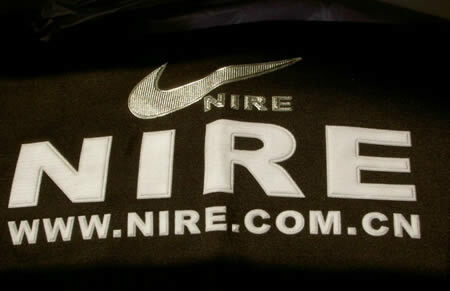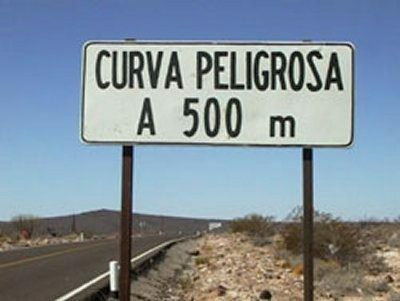Example of Expressions in English
English / / July 04, 2021
There are expressions in English that are used colloquially, in everyday conversation, but that its literal translation is confusing or not very understandable, either because of its context or the way it is uses. These types of colloquial expressions are called idioms or idiomatic expressions.
Idioms in general are expressions in English to which a metaphorical meaning is given, which when translated literally, it is meaningless or apparently in a context that does not corresponds. Some expressions are ironic, exaggerated, comparative, or metaphorical.
It is a common mistake to confuse idioms with slang. Both forms of expression are used to make comparisons and enrich the expressions. The expressions in English, idioms, can be used, within certain limits, with relative frequency, even in the language formal, to enrich oral and written expression, as we have already mentioned, through exaggerations, metaphors, ironies or comparisons. For its part, slang is a variant of the informal language, local or limited to certain groups (common and professional), who use their own expressions, or their own contexts. Its use is not recommended in oral or written language, since slang tends to use of very professional words, or on the contrary incomplete, vulgar or with erotic references.
50 examples of English expressions (idioms):
A whole new ball game (A completely new ball game): When a situation is novel and different from the usual; unforeseen.
Alive and kicking (alive and kicking): It is used when someone comes out of a difficult situation, which it was thought they could not solve.
Bad egg (bad egg): With this expression we refer to a person with bad feelings, unpleasant and that at least apparently, his whole life has been like this.
Be on cloud nine (to be on cloud nine): Used to talk about someone who is distracted, distant, as a result of joy or happiness; be in love.
Carry the ball (guide the ball): Be in control of a situation.
Come (or be) under fire (to come [or be] under fire): Used to talk about someone who is the object of criticism, whether justified or unjustified.
Says with dead ([playing dice] with death): Refers to someone who faces a very dangerous situation despite the risks.
Drive someone up the wall (lead someone over the wall): provoke, enrage a person, make him out of his mind.
Eat humble pie (eats humility cake): This expression is used to say that someone recognizes his mistakes, accepts his mistakes.
Everybody and his aunt (everyone and his aunt): it is said when something is public knowledge, such as when a secret is revealed and everyone finds out.
Face the music (faces music): Used to tell someone to face the consequences of their decisions and actions
Fall head over heels for someone (lower head on someone's heels): This is how you talk about a person who is madly in love.
Get in someone’s hair (get into someone's hair): Annoy someone, have them fed up.
Get something off your chest (remove something from your chest): Unburden, confess, alleviate a discomfort or pain telling it.
Have a cow (to have a cow): Being worried, upset or upset with something that happens.
Have the bigger fish to fry (have the largest fish to fry): Be in charge of the most important activity (s).
In tune (in tune): Understand a fact or situation of a person or thing.
Itchy feet (itchy feet, itchy feet): Restlessness to leave or leave a place; need to travel.
Jack of all trades (wild card of all trades): man skilled in many things, a thousand uses, a todologist.
Join the club (join the club): It is used when someone falls into the same situation as another, usually a bad situation, although it is also used when someone improves.
Keep body and soul together (to keep body and soul together): To have the capacity to support oneself, to obtain shelter and food.
Kick the bucket (kick the boat): die, kick the bucket.
Let the cat out of the bag (letting the cat out of the bag): Revealing a secret accidentally, unintentionally.
Lovely weather for ducks (lovely weather for ducks): Too rainy a day.
Miss the boat (lose the pot): lose or miss a good opportunity.
Never mind (never think about it): It doesn't matter, not giving importance to something.
No Spring chicken (No spring chicken): It is said of someone who is no longer young.
Odd duck (rare duck): Used to speak of someone with outstanding abilities.
Out of the blue (out of the blue): to refer to something unexpected, unforeseen.
Puppy love (puppy love): Childish, idealized or platonic infatuation.
Quick one (a quickie): have a drink, usually alcoholic, before doing something.
Red handed (red handling): red-handed; caught doing something he shouldn't have.
Red ink (red ink): red numbers, have financial losses.
Safe and sound (safe and sounding): Get out of a difficulty well, be safe and sound.
Say uncle (say uncle): Admit a mistake or mistake.
Set the ball rolling (get the ball rolling): Start, start something.
Shift gears (turn the gears): suddenly change an activity, change activity or job.
Shotgun wedding (shotgun wedding): forced wedding by which the groom is forced to comply.
Skin someone alive (skin someone alive): apply a very severe punishment.
Take a dim view of (to take a dark opinion of): express disapproval or dislike.
Talk through the hat (Talk through hat): Talk incoherent and nonsensical
To sell wolf tickets (sell wolf tickets): make false promises, promise something that will not be kept.
Under the wire (Under the wire): do something improvised and last minute.
Vanish into the air (to vanish into thin air): to disappear, to vanish; rush out of a place.
Walk on eggs (Walk on eggs): Do something very carefully, taking all precautions.
Wear the pants (to put on pants): to take control of a problem or discussion.
Whiter than white (whiter than white): It means that something is very clear, honest, sincere.
X-rated (X rating): It is said of movies, books, magazines or conversations only for adults, not suitable for minors.
You got me there (You have me there): It is used in interviews to refer to something that we cannot answer, that they grab us from the descent.
Zero hour (zero hour): The moment something begins or should begin.



